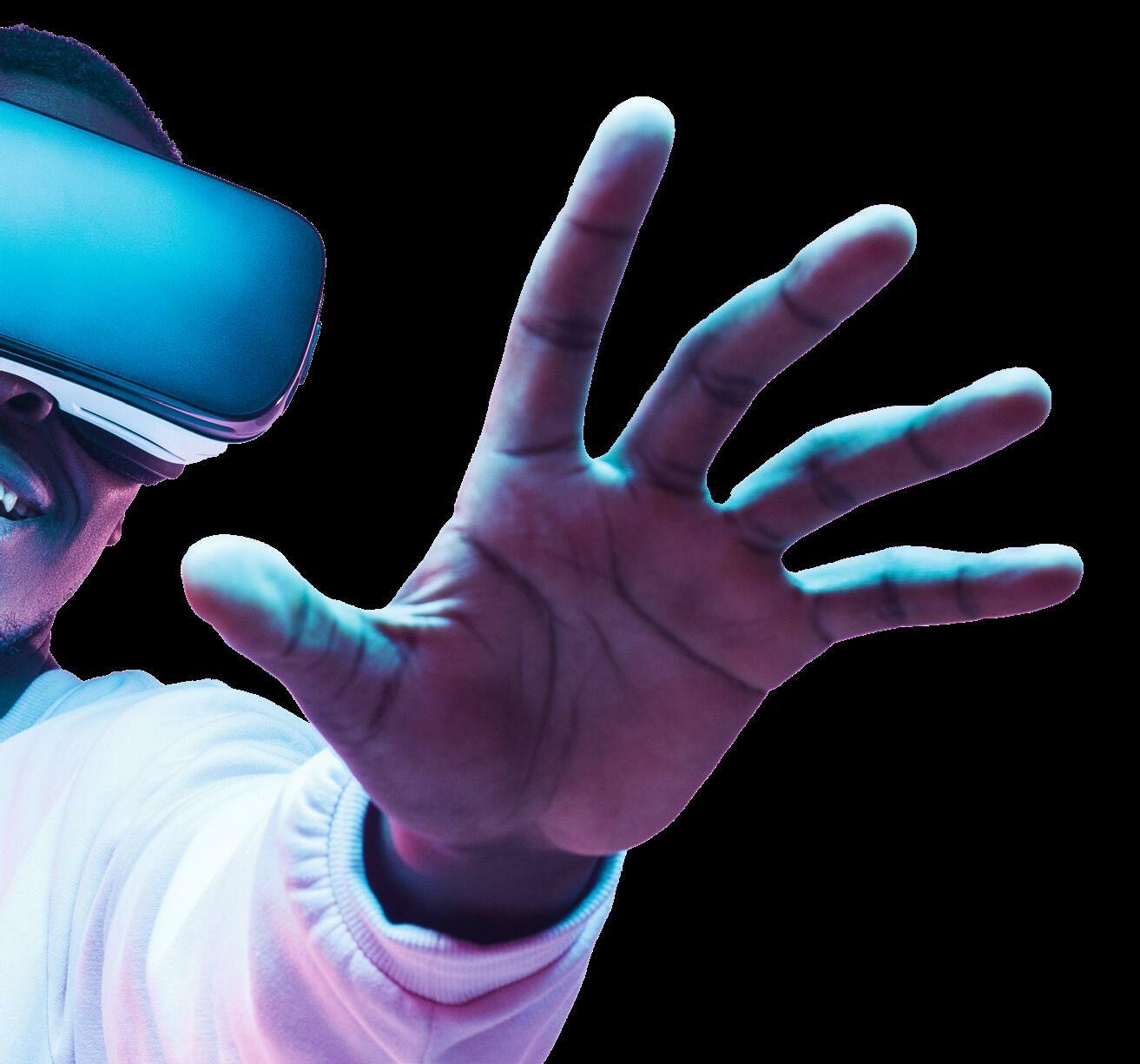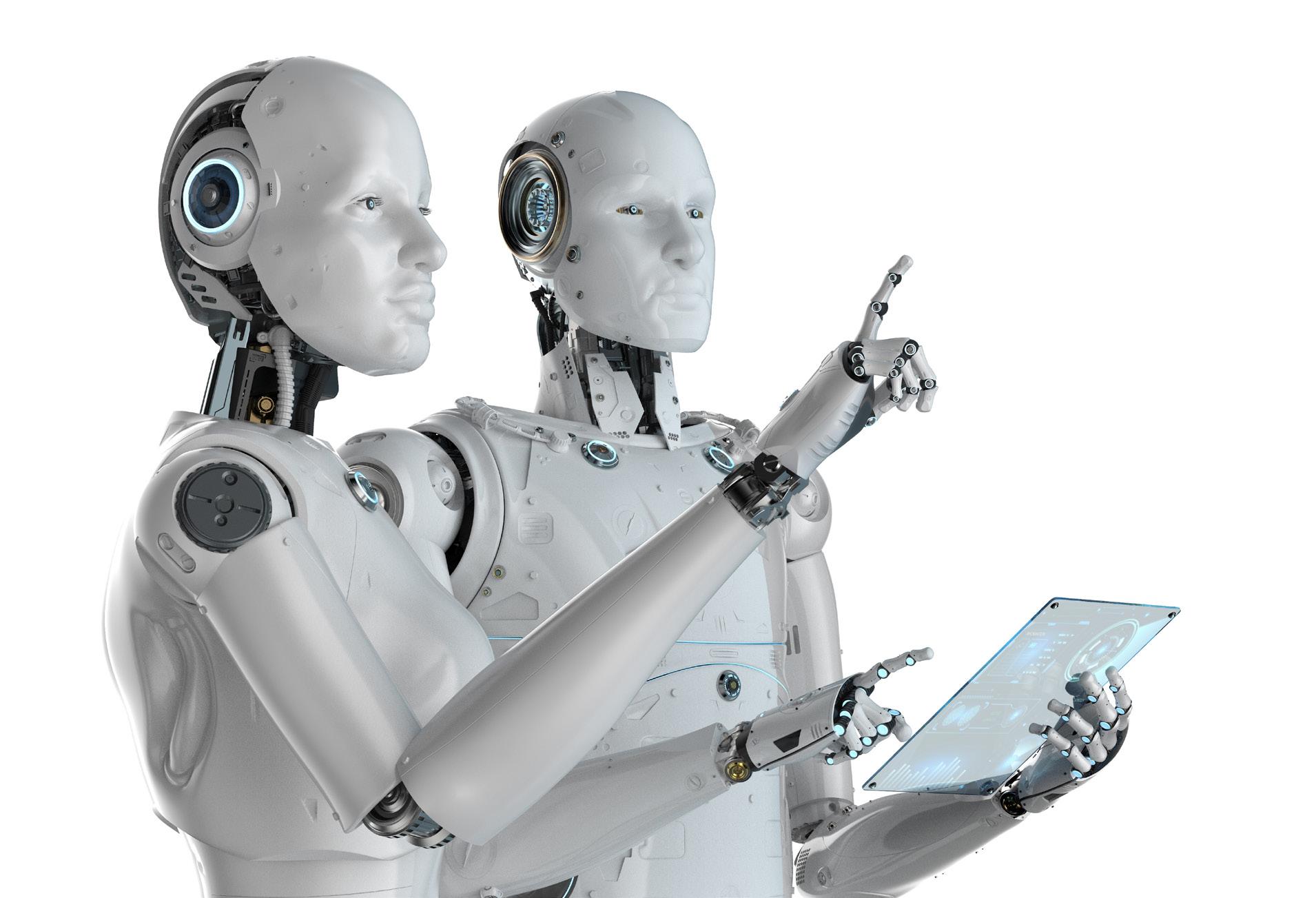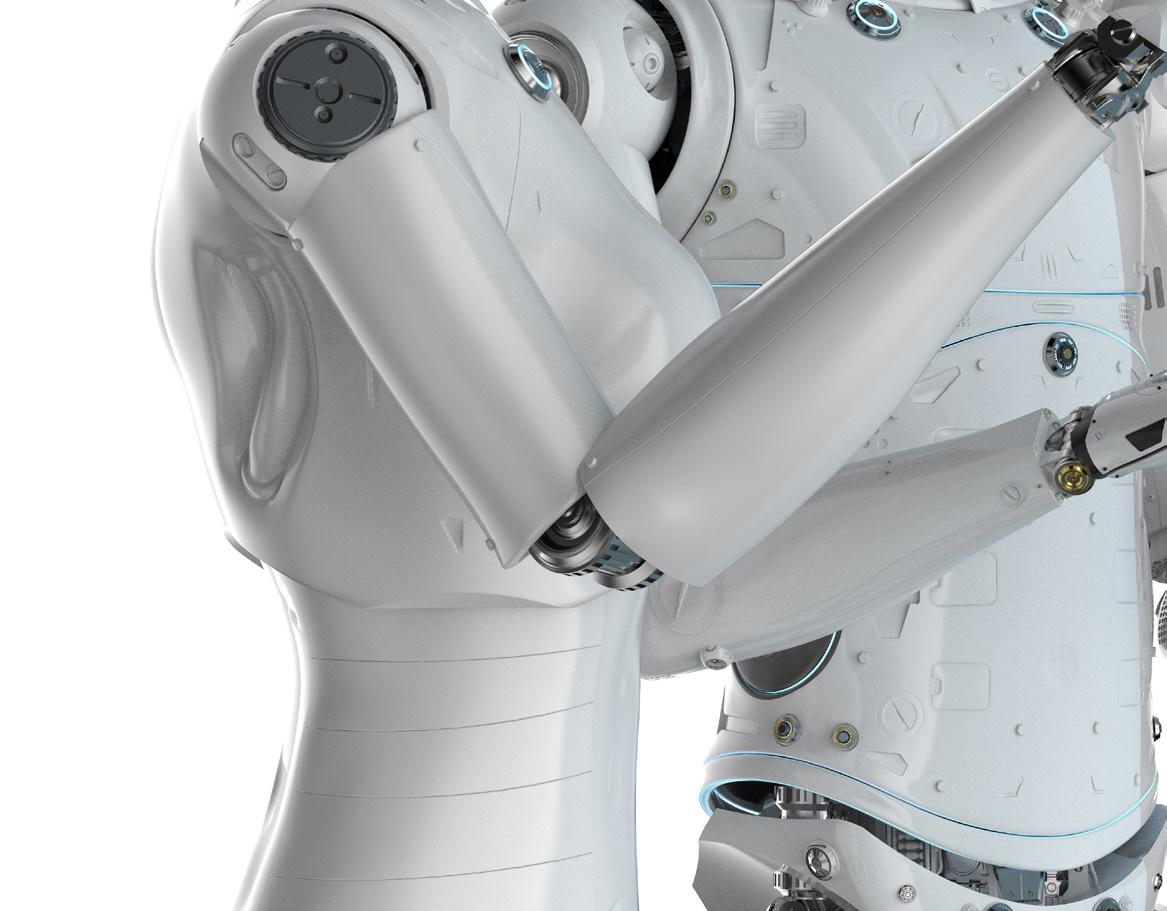
7 minute read
FUTURE PROOFING CAREERS AND BUSINESS
The last two years have changed everything. For companies. For leaders. For employees. Anxiety about workers being replaced is rampant.
The pandemic brought the future of work forward to today; with the new work patterns we formed in crisis becoming our next normal. What will jobs look like in a few decades and what skills will be in greatest demand? Will technology outdo jobs and exacerbate inequality, or produce more meaningful work and improved societies?
Concern about a “jobless future” has never been greater. Seemingly every day, an academic, researcher, or technology leader suggests that in a world of automation and artificial intelligence (AI), workers will increasingly be a surplus to what businesses need.
The Covid-19 pandemic caused the world’s greatest-ever workplace experiment as businesses were driven to mobilise their workforces almost immediately from officebased work to home working with very little warning or preparation.

Current trends in business and technology show that the way employees work — where, when, why, and with whom — have and will continue to change over the next decade, bearing little resemblance to work as it stands today.

During uncertain times, technology has been an enabler for individuals, companies, and communities. It has facilitated new ways of working, and kept the economy buoyant. Tech has also been an important source of job creation as we return to a sense of normality. Nevertheless, we are not returning to the economy, or the labour market that we left in 2019.
“The Future of Work is characterised by complex technology, including artificial intelligence, networked ways of working and a focus on new skill sets. This brings into focus the re-drawing of knowledge boundaries”, according to Professor Juani Swart, Prof Human Capital Management, at the Future of Work Research Centre, University of Bath.
Technology is changing our lives in ways we could not have dreamed of only a few years ago, and these same technologies are also re-modelling work and how we operate and cooperate. This will have major implications for underlying business models and the way in which work is organised. To future-proof employees’ capability to work, they will need new skills – but which ones?
Employees Of Tomorrow
Drones and robots may be replacing humans in the workplace, but here are some great gigs you can look forward to in the coming years.
Workforce upskilling is one of the significant HR trends of the past few years. In 2030, it’s highly likely there will be jobs that don’t even exist yet. The world of work is evolving quickly, which means you have to figure out how to prepare for a future job role that’s impossible to predict.
However, there are sets of skills that are important now and will continue to be in the future. These include communication skills, digital and data skills, application of knowledge skills, people skills, and mental processes, according to Understanding Current and Future Skills Needs Policy Report.
97 million new roles will be created by 2025 as humans, machines, and algorithms increasingly work together, the World Economic Forum predicts. Employers expect to offer reskilling and upskilling to just over 70% of their employees by 2025, according to the Forum’s Future of Jobs Report 2020. An average of 66% of employers surveyed for the report also expect to get a return on their investment in upskilling and reskilling within one year.
“Professional roles are moving more towards social interactions, which replaces some roles which have been influenced by digital transformation. In summary, it is the creative and human aspects of work which take centre stage,” adds Swart.
The need for manual and physical skills, as well as basic cognitive ones, will decline, but demand and higher cognitive skills will grow. Looking ahead, the most beneficial work will be cognitive in nature. Employees will have to apply creativity, critical thinking, and constant digital upskilling to solve complex problems. Employees must consistently refresh their digital dexterity to meet new needs.
Leaders For Today
Business is under mounting pressure to become lean and agile. While employees’ skillset must adjust, likewise, leadership must shift - in terms of approach and abilities.
Leadership skills such as empathy, selfawareness, communication, and emotional intelligence are becoming more important, and others, for instance, confidence, are evolving to stay relevant for the times.
Managers will need to be flexible thinkers, skilled in guiding people through change, able to unite a diverse team in scattered locations, and capable of maintaining excellence in communication.
Social skills are taking centre stage. They are more than a conversational approach to interaction with others. Today, it must include an understanding of the social nature of work in a time of new work technologies, an always-on workforce, and the new pressures of network-centric work patterns.
So, today's leader must have social skills that transcend empathy and communication and create an environment based on those social skills.
Successful leaders have a blend of skills that combine interpersonal communication, emotional intelligence, and a tech-savvy mindset.
Will Gosling, UK Human Capital Practice Leader at Deloitte explains that future business leaders need to think about how they can drive transformation.
“This includes the ability to communicate a clear vision, motivate a team, focus on core values, and act as a mentor to help their team adapt to the challenges brought about by the future of work. In addition to these skills, leaders in hybrid workforces will need to prioritise seamless communication with employees by using collaborative technologies that enable good team dynamics, whether in an office environment or elsewhere”, according to Gosling.
“Business leaders also need to build and develop the skills required for change and adaptation to succeed in an increasingly uncertain and complex organisational and societal environment. For example, leaders will be required to display greater flexibility and trust as individuals seek new opportunities beyond their typical job role”, he adds.
Leaders might feel as if they’ve been hurled onto another planet, coping with so much change and uncertainty, but with the right skills they can keep up. There may be hesitation and trepidation, but there’s no going back. A little secret sauce in the form of future skills will help to sweeten the journey.
SKILLS FOR THE FUTURE Experts
say we are living through the Fourth Industrial Revolution, and 65% of children entering primary school today will ultimately end up working in completely new job types that don’t yet exist, according to the World Economic Forum. With the rise of automation, AI, and robotics, all the signs suggest that the next decade will be one of


Future skills are important because they equip people to cope with the ongoing shift in mindsets in the workplace and prepare for the rapid onset of technological advances. How can we thrive in an AI-first world? The answer is to become more human. Qualities such as agency, commitment, empathy, and perseverance will become more valuable in the workplace.
At Davos 2022, Microsoft Chief Executive Officer Satya Nadella spoke about leaders changing roles and how technology businesses can help protect people. When asked what is that leadership quality that each of us has to build more muscle in, he responded:
"It's that caring, because the reality is, all of us are going to have tail events that are going to be different. I think we have to realise that that ability to be in other people's shoes, have a sense of caring, that’s probably one of the most important things."
Gosling identifies that there has been real growth in the appetite for access to data and evidence-driven insights.
“This could feasibly lead to roles that are focussed on increasing connectivity of data sources across organisations, which will be supported through leveraging data platforms, as well as further understanding the data capabilities of existing technology solutions.”
With an increased appetite for automation, we will see more roles that are delivering automation across business functions in the future. According to Gosling, there will be an
“There are numerous tools and products in the market that support, with introducing AI and automation into the workplace and it can be expected that there will be roles required to ensure these are embedded and used effectively”, he says.


Also, the metaverse is coming — or rather, it is already here. The idea of virtual worlds has been around as far back as the 90s, if not earlier, and more than $10bn (£8.4bn) has already been invested in the metaverse by Meta Reality Labs. It is predicted that 10,000 jobs will be created over a five-year period and the market size is estimated to be $800bn (£671.6bn) by 2024. That is a lot of growth!
The demand for technology-related skills is growing steadily – the European Commission estimates an annual increase of four percent – and the supply is clearly insufficient, as shown by the fact that last year the European market suffered a deficit of 756,000 ICT experts. New innovative technology has a crucial part to play in transforming employee experience, connection, and inclusion at work, according to Meta’s research.
“Technology will be brought in to create better opportunities for employees and lessen the day-to-day pain points involved in remote work”, wrote Brynn Harrington, VP of People Experience at Meta, in the report.
“The number of job vacancies relating to the metaverse has sharply increased in recent times. These jobs relate not only to building the infrastructure associated with the metaverse but also translating areas of
Brynn Harrington
“And, by definition, it will require countless people to work countless jobs to get anywhere near its grand ambitions.
So, while technology is poised to eliminate millions of current jobs, it will also create millions of new ones. While big change is coming, a little advance planning — by workers who stand to be replaced and the companies that employ them — goes a long way.
No one has a crystal ball that can tell exactly what skills will be needed and what won’t. However, cognitive flexibility, digital literacy, solid decision-making skills, emotional and social intelligence, and a creative and innovative mindset will stand the test of time and be crucial to future job attainment.
SHOULD YOU BE WORRIED?
If you do a job at risk of disappearing in the next decade, you might be worried. But historically, technology creates more jobs than it destroys and rarely does technology eliminate entire jobs. In practice, technologies only automate tasks and reduce the labour involved in a job.
Employees are more likely to be redeployed into another function than outright lose their job. They may also have the opportunity to learn and develop new skills as part of that process. Start upskilling now and see the evolution of current roles as the opportunity for a career change.
As a child what did you want to be when you grew up? A teacher, a lawyer, or a doctor? Today’s children will have a whole host of different options to choose from. According to industry experts, Drone Managers and Data Detectives to Autonomous Transportation Specialists, are the types of roles we can expect to see very soon.
Social, digital, and technological trends will drive the future. As technology and automation advance at a staggering rate, the job sector will too, quickly adapting to support breakthroughs across industries.
Work, workers, and workspaces will continue to change and adapt, while the future of work is brighter and more exciting than ever.










